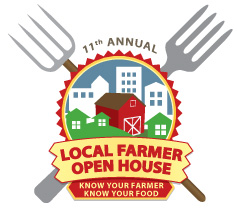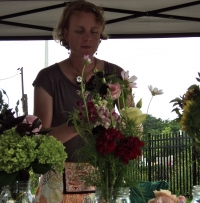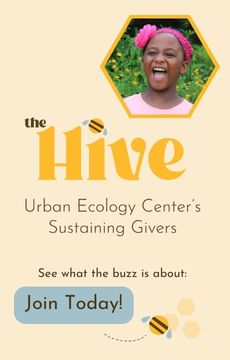When Emily was working in a high end flower shop, she noticed the flowers that they preferred to use were a little less ordinary than what you find at the supermarket or from chain flower shops. And they were paying a premium for these flowers. Most of them were flowers that she knew she could grow. So five years ago she asked her grandpa if she could borrow some of his land. “I don’t think he really knew what he was getting into; I don’t think that I did either. He gave me a half an acre that he wasn’t using. We both though this would be temporary, maybe a year or two and I would move on. I am still there,” said Emily.
The farm is in East Troy and Emily lives in Milwaukee, which has been very trying at times. She starts nearly all of her plants from seed in her basement and drives them out to the farm when they are ready to plant. During the peak season (late April-mid September) she goes out there nearly every day to water and harvest. “Flowers don’t stop opening just because I want a day off and harvesting at the appropriate time is essential to vase life,” she said. She out grew that little plot of land two years ago and has been searching for her own piece of paradise since, a surprisingly difficult task.
People always ask her how many different kinds of flowers she grows. She estimates that she plants 75 species and frequently grows multiple varieties/colors of each. “This year I bought close to 10,000 sunflower seeds representing 14 different varieties and colors. I plan to plant 150 dahlias representing 60 different varieties. The first seeds I start are snapdragons at the end of January and the last seeds are usually sunflowers at the beginning of August. I spend at least a week in the winter planning out exactly when to start every single crop and where exactly to plant it for maximum efficiency. I only have half an acre so I have to make the most of it,” she said.
Learning the business of farming has been as important to Emily as planning her plantings. “When I first started out, all I wanted to do was wholesale. After two years of that I realized that I was losing money with my small scale operation and so I began doing weddings. It was slow going the first year. I had to shift gears and get the word out. Last year I did 20 weddings and I have nearly that many lined up for this year. Weddings are a lot of work, they take so much organization and planning but are always worth it in the end. It is so satisfying when I deliver the flowers and I can see the look of pure joy that comes over the bride’s face. Some of my favorite venues are the Schlitz Audubon Nature Center, the Urban Ecology Center, and Cuvee in the Third Ward,” she said.
Last year she added a floral CSA to her line up as a new way to market her flowers. She enjoys providing people with nice, everyday bouquets that they can enjoy in their homes. “My flowers are not doused in chemicals and people in developing nations were not exploited in the growing of them. Both of these things are a huge problem in the global flower trade. It is estimated that 80% of the flowers sold in this country come from Colombia and Ecuador, where environmental and labor standards are very different than they are here." she said.
“My business is on the edge of big changes. New for this year, I am cooperating with my friends at Fair Trade for All in Wauwatosa to put a small seasonal and locally grown flower shop in their store. This is the year we buy a farm and start over. I have got big plans. It is going to be great!” said Emily.
This blog post was written by Theresa Lins. Theresa is a Milwaukee-based writer and Urban Ecology Center “groupie”. She has been active in promoting the Center and its programs for over 14 years. Other than eating farm-fresh food, her favorite thing is to write about it and the people who produce it.
This blog post was written by Theresa Lins. Theresa is a Milwaukee-based writer and Urban Ecology Center “groupie”. She has been active in promoting the Center and its programs for over 14 years. Other than eating farm-fresh food, her favorite thing is to write about it and the people who produce it.
 You can meet these farmers and many others at the Local Farmer Open House on Saturday, March 8th at our Riverside Park branch. Meet and sign up with farmers, learn how you can join a CSA farm (purchase a share of the harvest) and get a box of fresh produce each week during the season. Join us for this free event!
You can meet these farmers and many others at the Local Farmer Open House on Saturday, March 8th at our Riverside Park branch. Meet and sign up with farmers, learn how you can join a CSA farm (purchase a share of the harvest) and get a box of fresh produce each week during the season. Join us for this free event!





